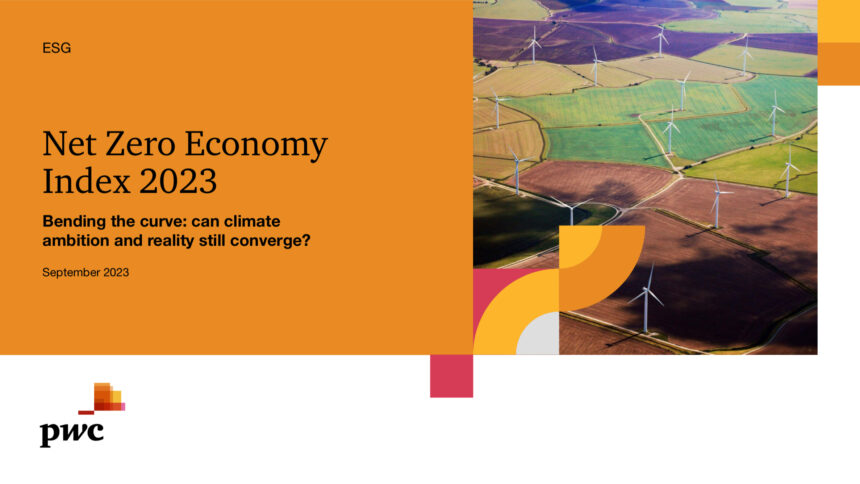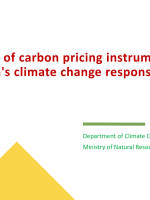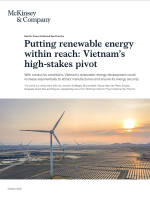- Version
- Download 21
- File Size 4.31 MB
- File Count 1
- Create Date 30/09/2023
- Last Updated 17/01/2024
[PwC] Net Zero Economy Index 2023
This is the 15th Net Zero Economy Index, which is our annual indicator of the progress made in reducing energy-related CO2 emissions and decarbonising economies.
The world achieved a decarbonisation rate of just 2.5% in 2022, which means a year-on-year decarbonisation rate of 17.2% is now required to limit average global warming to 1.5°C above pre-industrial levels. That’s seven times faster than at present. While this figure is stark, our analysis also reveals that last year saw a surge in renewable energy adoption, demonstrating the growing potential for an accelerated and market-led transition. This development, alongside the COP28 Presidency’s action plan for renewable energy capacity to triple by 2030 and net zero action rising up boardroom agendas, is galvanising the momentum required to scale decarbonisation efforts.
The results are an urgent reminder that we must act to meet ambitious net zero targets. This year can be the one that finally unlocks the true power of business, the capital markets and competition to spur breakthrough innovation, accelerated emission reductions and mass behavioural change. But it needs diplomacy and policy to align - both between and within countries - to deliver clarity for private investment to scale.
There is hope, but we risk doing too little, too late. We no longer question whether urgent transition to the net zero economy is necessary, but this might be our last year to answer whether we will act fast enough.
(Source: PwC)





